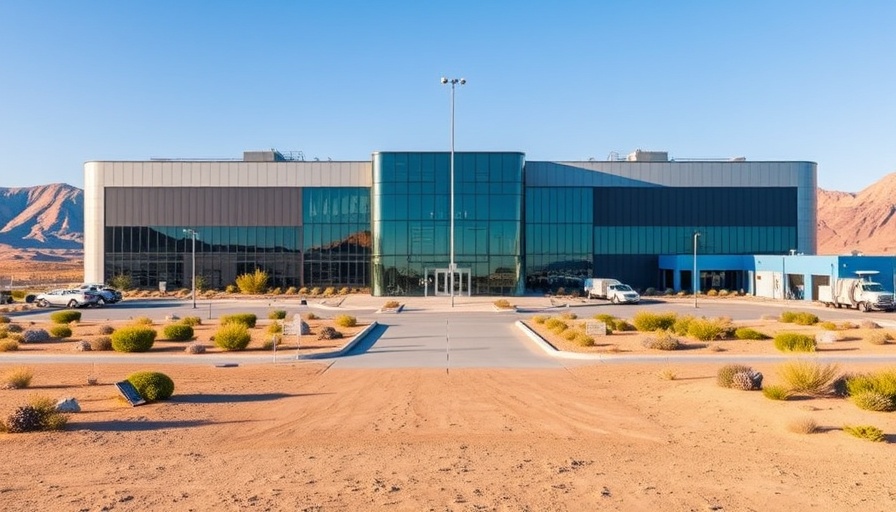
Understanding TSMC's $165 Billion Investment and Its Implications
The announcement by Taiwan Semiconductor Manufacturing Company (TSMC) of a monumental $165 billion investment in the United States marks a pivotal moment for both the semiconductor industry and American manufacturing. This investment, categorized as the largest single foreign direct investment in U.S. history, underscores TSMC's commitment to advancing the chip manufacturing sector within the U.S., particularly in emerging technologies such as artificial intelligence (AI).
The Geopolitical Context Behind the Investment
As global supply chains have been increasingly strained, particularly during the COVID-19 pandemic, the focus on domestic semiconductor manufacturing has intensified. TSMC's decision aligns with U.S. efforts to reduce dependency on foreign chipmakers and bolster national security within the technology sector. President Trump emphasized that the most powerful AI chips will now be manufactured on American soil, a statement reflective of a broader strategy aimed at reinforcing industrial presence in the U.S.
Economic Impact: Job Creation and National Competitiveness
The direct economic implications of TSMC's investment are profound, as the company anticipates the creation of approximately 40,000 jobs in construction alone, with thousands more in high-tech manufacturing and research and development (R&D). This significant job creation is not only crucial for the local economy but also enhances U.S. competitiveness in the global semiconductor market. In a landscape often dominated by Asian manufacturers, such investments signal a commitment to expanding high-value job sectors at home.
Transformative Potential for AI and Semiconductor Markets
With TSMC focusing its investments on advanced technologies, the implications for the AI sector are particularly noteworthy. Historically, TSMC has produced cutting-edge chips for major players like Nvidia, and the expansion into U.S. manufacturing could lead to greater efficiency and responsiveness in supply chains for AI chip production. This shift could ultimately accelerate innovations across various sectors, including automotive and healthcare, leveraging AI capabilities that require advanced semiconductor technologies.
Challenges Ahead: Competitors and Market Dynamics
While TSMC is poised to benefit significantly from this investment, it is critical to consider the competitive landscape. Intel, a key player in the semiconductor space, has been struggling with market share and has sought clients for its manufacturing capabilities. The dynamics suggest a heightened competition, as Intel is attempting to secure contracts with AI companies like Nvidia and Advanced Micro Devices, which are assessing whether to utilize Intel's facilities for their manufacturing needs.
The Future of Semiconductor Manufacturing in the U.S.
As TSMC embarks on this ambitious investment journey, the future of semiconductor manufacturing in the U.S. looks promising yet complex. The challenge will be maintaining momentum while navigating potential regulatory and market challenges, especially as global geopolitical scenarios evolve. The initial focus on Arizona indicates the state may become a pivotal hub for semiconductor innovation, allowing TSMC to mitigate risks associated with overseas production.
In conclusion, TSMC's substantial investment represents a transformative opportunity not only for the chip industry but for the broader American manufacturing landscape. Executives, decision-makers, and industry leaders should recognize the potential benefits while remaining vigilant to the emerging challenges that accompany this new chapter in semiconductor production.
 Add Row
Add Row  Add
Add 




Write A Comment